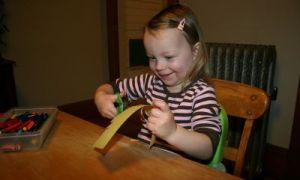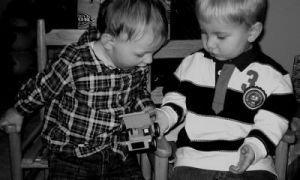

Regulatory authorities across Australia have identified staffing as a priority area, with a strong focus on ensuring educators hold valid, authentic qualifications. Unfortunately, fraudulent certificates continue to circulate, and some are sophisticated enough to fool even experienced leaders.
This article gives you a clear, practical guide to:
Our early childhood sector is facing a troubling paradox. On one hand, thousands of students are enrolling in Certificate III programs, eager to join the workforce. On the other hand, services are reporting that these trainees arrive on placement underprepared, leaving educators overwhelmed and children underserved. This mismatch between training and practice is not just frustrating—it’s unsustainable.
In recent years, the early childhood education and care sector has faced a troubling rise in fraudulent qualifications, a threat not only to professional integrity but also to the safety and wellbeing of children. From forged certificates to unaccredited training providers, the issue has triggered national investigations and sweeping reforms.
When unraveling whether a candidate has shortcut their Early Childhood Education (ECE) training, structured interviews and targeted questions can expose gaps in real-world competence. Fast-track or “vacation” pathways have raised alarm after thousands of candidates completed diplomas and graduate qualifications in months—sometimes with no genuine workplace experience and questionable oversight.
The Australian Skills Quality Authority, in collaboration with HumanAbility and sector partners, has released updated guidance to strengthen how early childhood education and care students are assessed during workplace placements. This article unpacks the key elements of the guidance, highlights unacceptable practices, and offers best-practice recommendations for registered training organisations and ECEC services.
In New South Wales, a disturbing trend is emerging: early childhood education students are paying thousands of dollars for contract cheating services—outsourcing assignments to third parties, often via encrypted platforms like WhatsApp. Some are reportedly using these fraudulent qualifications to fast-track visa approvals and bypass the very training meant to prepare them to support, nurture, and educate our youngest citizens.
Thousands of educators entered the field armed with certificates but short on competence. Driven by profit motives and migration incentives, several education providers offered one-year diplomas with minimal oversight and limited practical learning. This is not just a compliance issue—it’s a moral imperative. The following article provides strategies on how the sector can rebuild quality and credibility.
In a sweeping move to restore integrity to Australia’s vocational education and training (VET) sector, the Australian Skills Quality Authority (ASQA) has revoked an estimated 10,700 that were linked to early childhood education and care in late 2024. Providers like Luvium Pty Ltd and Gills College were found to have issued credentials without proper training or assessment.
Australia’s early childhood education sector is facing a crisis of confidence, with a growing number of insiders warning that fast-tracked qualification courses are putting children at serious risk. A recent investigation by ABC’s Adele Ferguson and Chris Gillett has exposed a troubling trend: education providers, driven by profit and immigration incentives, are flooding the sector with underprepared graduates—many of whom lack the skills, understanding, and commitment necessary to ensure children’s safety and well-being.
A: The short answer: Yes, in most cases. While ACECQA requires practicums as part of qualifications, the rule that some hours must be completed outside the current workplace is usually enforced by training providers (TAFEs, RTOs, universities). This ensures diverse experiences, exposure to different service types, and quality assurance across the sector.
Practicums are a vital part of ECEC qualifications in Australia. They ensure that students gain supervised, hands‑on experience in real settings, bridging theory with practice.
 Toddlers have a greater understanding of the world around them by this stage. Their cognitive development (also known as intellectual development and thinking skills) continues… Read More
Toddlers have a greater understanding of the world around them by this stage. Their cognitive development (also known as intellectual development and thinking skills) continues… Read More
 Infants begin to develop trust when parents begin to fulfil their needs. Such as changing an infant's nappy when needed, feeding on request and holding… Read More
Infants begin to develop trust when parents begin to fulfil their needs. Such as changing an infant's nappy when needed, feeding on request and holding… Read More
 Beginning at birth the construction of thought processes, such as memory, problem solving, exploration of objects etc, is an important part of an infant’s cognitive… Read More
Beginning at birth the construction of thought processes, such as memory, problem solving, exploration of objects etc, is an important part of an infant’s cognitive… Read More
 Toddlers want to do more on their own and do not like it when you begin to establish limits on their behaviour. Tantrums can become… Read More
Toddlers want to do more on their own and do not like it when you begin to establish limits on their behaviour. Tantrums can become… Read More
 Your preschooler is now able to focus their attention more accurately and is less influenced by distractions. The intensity of questions increase as your child… Read More
Your preschooler is now able to focus their attention more accurately and is less influenced by distractions. The intensity of questions increase as your child… Read More
 John Dewey is often seen as the proponent of learning by doing – rather than learning by passively receiving. He believed that each child was active,… Read More
John Dewey is often seen as the proponent of learning by doing – rather than learning by passively receiving. He believed that each child was active,… Read More
 Toddler advance and gains new skills in Gross Motor Development milestones achieved throughout earlier years. Co-ordination and challenges that could not be performed before such… Read More
Toddler advance and gains new skills in Gross Motor Development milestones achieved throughout earlier years. Co-ordination and challenges that could not be performed before such… Read More
 Erik Erikson developed a psychosocial theory to understand how we each develop our identities through eight stages of psychosocial development from infancy to adulthood. The… Read More
Erik Erikson developed a psychosocial theory to understand how we each develop our identities through eight stages of psychosocial development from infancy to adulthood. The… Read More
 At this point preschoolers begin to interact effectively with others. Play becomes more innovative and organized and “boyfriend” or “girlfriend” begins to emerge. Preschoolers have… Read More
At this point preschoolers begin to interact effectively with others. Play becomes more innovative and organized and “boyfriend” or “girlfriend” begins to emerge. Preschoolers have… Read More
 From now, babies begin to identify and respond to their own feelings, understanding other's feelings & needs and interact positively with others. A baby's social and… Read More
From now, babies begin to identify and respond to their own feelings, understanding other's feelings & needs and interact positively with others. A baby's social and… Read More

Preschoolers continued progress with fine motor skills depends on the stimulation and encouragement they receive...
See more...
Toddlers want to do more on their own and do not like it when you...
See more...
Caring for babies in their gross motor development stage involves encouraging activities that promote strength...
See more...© 2009-2025 Aussie Childcare Network Pty Ltd. All Rights Reserved.

